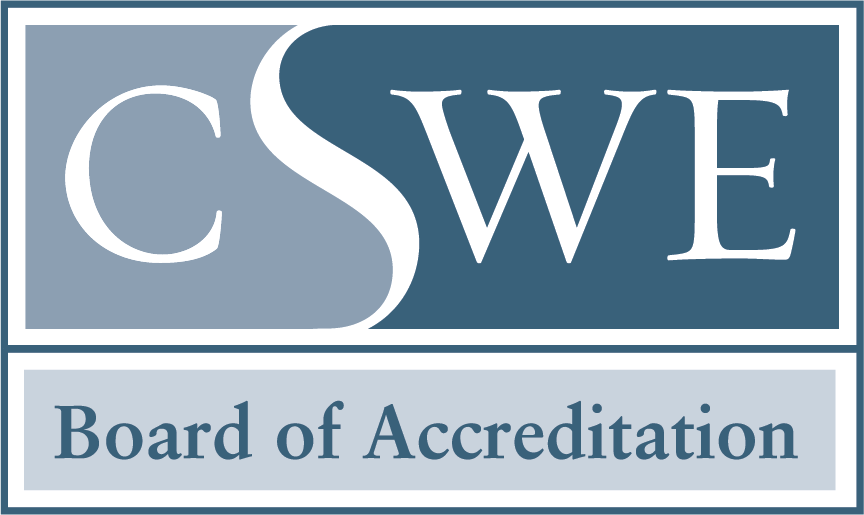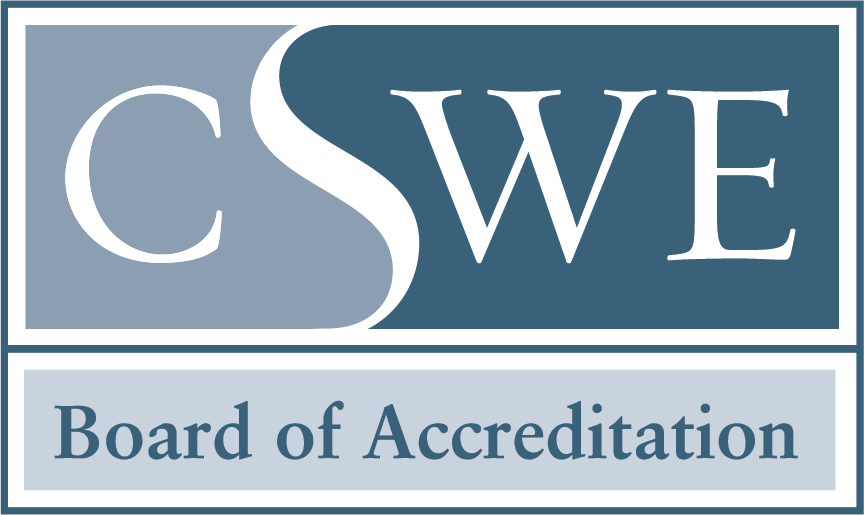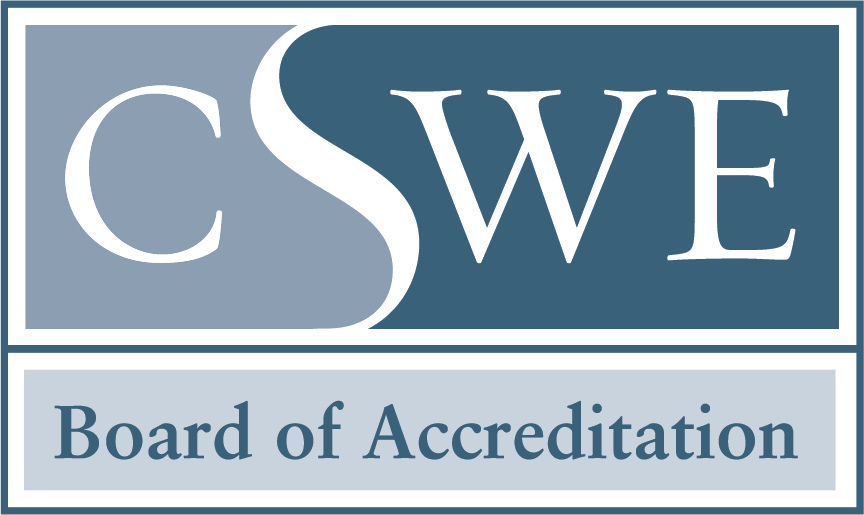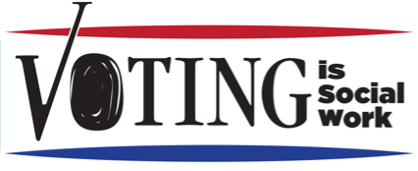Catalog Advanced Search
-
Contains 56 Component(s) Includes Multiple Live Events. The next is on 07/31/2025 at 2:00 PM (EDT)
Achieve your program's accreditation goals by engaging in this hybrid training featuring self-paced online learning modules and live drop-in Q&A sessions.
2022 EPAS Reaffirmation Training
CSWE's Department of Social Work Accreditation (DOSWA) is pleased to offer this 2022 Educational Policy and Accreditation Standards (EPAS) reaffirmation accreditation training for social work educators.
Purpose | This training prepares accredited baccalaureate and master’s social work programs for reaffirmation and continuous compliance under the 2022 Educational Policy and Accreditation Standards (EPAS).
Objectives | This training will enable programs to:
- Understand and navigate accreditation processes.
- Learn and apply the 2022 EPAS within the program’s unique context.
- Understand fundamentals of scheduling and hosting a site visit.
- Gain awareness of and encourage engagement with CSWE accreditation services.
- Promote confidence in the reaffirmation process for continuous improvement.
This hybrid training model consists of two components:
- Self-paced online learning modules via the CSWE Learning Academy
- Live drop-in question and answer (Q&A) sessions via Zoom
Online modules are designed to provide resources and guidance for each step in the reaffirmation process and continuous compliance between reviews. Live Q&A sessions provide interactive spaces for multiple programs to ask questions, learn from each other, and consult with CSWE accreditation staff.
To maximize your learning and the program's success achieving its accreditation goals, programs are encouraged to engage in all components of this hybrid training and our year-round accreditation services.
Additional modules and Q&A sessions will be added as they become available. Check back often for new content!
How to Navigate this Training Course
- To maximize your learning, we advise you to complete the full course by reviewing each tab consecutively from left to right, beginning with this "Course Overview" tab followed by the "Reaffirmation Timetables & Fees" tab.
- As you review each tab, you are encouraged to attend live Q&A sessions to assist your learning process. Review the "Live Q&A Sessions" for dates, times, and access information.
- Once you've completed all tabs, you are welcome to revisit the video modules, step-by-step tabs, and attend live Q&A sessions as you navigate your program's reaffirmation process and engage in continuous compliance efforts.
- We empower each learner to complete the pre/posttest to help the CSWE accreditation staff understand the training strengths and needs of our learners. We also ask that each learner complete a training evaluation so that we can continue to enhance training, services, and resources. These feedback opportunities are found in the "Video Modules & Evaluations" tab. Thank you for your invaluable feedback!
Consultation Services
During and between reaffirmation cycles, program primary contacts may email questions to their their program's CSWE accreditation specialist. They may also book phone or video consultations via a scheduling application located in each specialist’s email signature. Learn more about CSWE accreditation services.
Accreditation consultations and presentations are also provided at CSWE's Annual Program Meeting (APM) and communicated to program primary contacts in advance of the conference.
Are you a primary contact and unsure who is your program's accreditation specialist? Email accreditation@cswe.org. Primary contacts are identified in the Directory of Accredited Programs.
Webinars
CSWE accreditation staff provide topical webinars featuring accreditation information, resources, and helpful tips, as well as to respond to questions about the selected topic.
Additional webinars are posted on the CSWE accreditation training webpage and communicated to program primary contacts as they become available.
Past Accreditation Slide Decks
Past accreditation slide decks and recordings are posted on the CSWE accreditation training webpage. Topics include:
- Accreditation Services Orientation
- Demystifying the Accreditation Process
- Writing an Accreditation Document
- Navigating Accreditation-Related Program Changes
- 2015 EPAS: Assessment of Student Learning Outcomes
- 2015 EPAS: Frequently-Cited Standards
Additional slide decks are posted on the CSWE accreditation training webpage as they become available.
CSWE Membership
While not a function of accreditation, CSWE encourages all who teach, work, and learn at a candidate or accredited social work education program to link to their program's CSWE membership! This is a great way to keep your educational community connected to CSWE and remain current on both compliance matters and best practices in social work education.
Programs are encouraged to complete this training course, engage in accreditation services, and utilize all resources available to achieve its accreditation goals. We look forward to collaborating with you!
Cost
This 2022 EPAS reaffirmation training is at no additional cost.
This training model allows unlimited access to both online self-paced learning modules and live drop-in Q&A sessions for social work educators.
Questions? Email accreditation@cswe.org.
Registration
Step 1: Click the green "Register" button in the upper-right corner and complete the no-cost registration.
Step 2: After you are registered, visit the "Live Q&A Sessions" tab and register for as many or as few drop-in consultations as desired.How do I login to the CSWE Learning Academy?
To register for the 2022 EPAS Reaffirmation Training, you must be a CSWE member and have a CSWE Learning Academy account and login credentials. Remember, CSWE program membership now extends to all who teach, work, and learn at a candidate or accredited social work education programs!
Current Members/Users
If you are already a CSWE member and have an existing CSWE Learning Academy account and login credentials, login to the CSWE Learning Academy.
Need to check if you are a member? Visit the CSWE membership website.
Need to check if you have CSWE Learning Academy login credentials or reset your password? Visit the CSWE Learning Academy website.
New Members/Users
Complete the following steps:
- Visit the CSWE membership website to become a member and link yourself to your social work education program.
- Tip! Use the same email address and password to create both your membership and CSWE Learning Academy accounts. These are separate accounts and you will complete account set-up steps for each.
- Visit the CSWE Learning Academy and click the "Create Account" button.
- Complete all prompts to create a new account.
- When creating a new account or updating your profile, a prompt will ask you to indicate if you are "Member" or "Non-member." Select "Member."
- Login to the CSWE Learning Academy with the same email address and the password used to create your new account.
Questions about registration? Email accreditation@cswe.org.
-
Register
- Member - Free!
- More Information
-
Contains 49 Component(s) Includes Multiple Live Events. The next is on 07/30/2025 at 2:00 PM (EDT)
Achieve your program's accreditation goals by engaging in this hybrid training featuring self-paced online learning modules and live drop-in Q&A sessions.
2022 EPAS Pre-candidacy & Candidacy Training
CSWE's Department of Social Work Accreditation (DOSWA) is pleased to offer this 2022 Educational Policy and Accreditation Standards (EPAS) pre-candidacy & candidacy accreditation training for social work educators.
Purpose | This training prepares pre-candidate and candidate baccalaureate and master’s social work programs for each benchmark in the candidacy process, including reviews by the Board of Accreditation (BOA), and continuous compliance under the 2022 Educational Policy and Accreditation Standards (EPAS).
Objectives | This training will enable programs to:
- Understand and navigate accreditation processes.
- Learn and apply the 2022 EPAS within the program’s unique context.
- Understand fundamentals of scheduling and hosting a candidacy visit.
- Gain awareness of and encourage engagement with CSWE accreditation services.
- Promote confidence in the accreditation process for continuous improvement.
This hybrid training model consists of two components:
- Self-paced online learning modules via the CSWE Learning Academy
- Live drop-in question and answer (Q&A) sessions via Zoom
Online modules are designed to provide resources and guidance for each step in the candidacy process and continuous compliance between reviews. Live Q&A sessions provide interactive spaces for multiple programs to ask questions, learn from each other, and consult with CSWE accreditation staff.
To maximize your learning and the program's success achieving its accreditation goals, programs are encouraged to engage in all components of this hybrid training and our year-round accreditation services.
Additional modules and Q&A sessions will be added as they become available. Check back often for new content!
How to Navigate this Training Course
- To maximize your learning, we advise you to complete the full course by reviewing each tab consecutively from left to right, beginning with this "Course Overview" tab followed by the "Candidacy Process Timetables & Fees" tab.
- As you review each tab, you are encouraged to attend live Q&A sessions to assist your learning process. Review the "Live Q&A Sessions" for dates, times, and access information.
- Once you've completed all tabs, you are welcome to revisit the video modules, step-by-step tabs, and attend live Q&A sessions as you navigate your program's candidacy process and engage in continuous compliance efforts.
- We empower each learner to complete the pre/posttest to help the CSWE accreditation staff understand the training strengths and needs of our learners. We also ask that each learner complete a training evaluation so that we can continue to enhance training, services, and resources. These feedback opportunities are found in the "Video Modules & Evaluations" tab. Thank you for your invaluable feedback!
Consultation Services
Throughout the candidacy process and beyond, program primary contacts may email questions to their program's CSWE accreditation specialist. They may also book phone or video consultations via a scheduling application located in each specialist’s email signature. Learn more about CSWE accreditation services.
Accreditation consultations and presentations are also provided at CSWE's Annual Program Meeting (APM) and communicated to program primary contacts in advance of the conference.
Are you a primary contact and unsure who is your program's accreditation specialist? Email accreditation@cswe.org. Primary contacts are identified in the Directory of Accredited Programs.
Webinars
CSWE accreditation staff provide topical webinars featuring accreditation information, resources, and helpful tips, as well as to respond to questions about the selected topic.
Additional webinars are posted on the CSWE accreditation training webpage and communicated to program primary contacts as they become available.
Past Accreditation Slide Decks
Past accreditation slide decks and recordings are posted on the CSWE accreditation training webpage. Topics include:
- 2022 EPAS: Assessment Essentials
- 2022 EPAS and ADEI
- Accreditation Services Orientation
- Demystifying the Accreditation Process
- Writing an Accreditation Document
- Navigating Accreditation-Related Program Changes
- 2015 EPAS: Assessment of Student Learning Outcomes
- 2015 EPAS: Frequently-Cited Standards
Additional slide decks are posted on the CSWE accreditation training webpage as they become available.
CSWE Membership
While not a function of accreditation, CSWE encourages all who teach, work, and learn at a candidate or accredited social work education program to link to their program's CSWE membership! This is a great way to keep your educational community connected to CSWE and remain current on both compliance matters and best practices in social work education. If your program has pre-candidacy status, make a note to share the individual membership opportunity, this assuming your program is granted candidacy status.
Programs are encouraged to complete this training course, engage in accreditation services, and utilize all resources available to achieve its accreditation goals. We look forward to collaborating with you!
Cost
This 2022 EPAS pre-candidacy & candidacy training is at no additional cost.
This training model allows unlimited access to both online self-paced learning modules and live drop-in Q&A sessions for social work educators.
Questions? Email accreditation@cswe.org.
Registration
Step 1: Click the green "Register" button in the upper-right corner and complete the no-cost registration.
Step 2: After you are registered, visit the "Live Q&A Sessions" tab and register for as many or as few drop-in consultations as desired.How do I login to the CSWE Learning Academy?
To register for the 2022 EPAS Reaffirmation Training, you must be a CSWE member and have a CSWE Learning Academy account and login credentials. Remember, CSWE program membership now extends to all who teach, work, and learn at a candidate or accredited social work education programs!
Current Members/Users
If you are already a CSWE member and have an existing CSWE Learning Academy account and login credentials, login to the CSWE Learning Academy.
Need to check if you are a member? Visit the CSWE membership website.
Need to check if you have CSWE Learning Academy login credentials or reset your password? Visit the CSWE Learning Academy website.
New Members/Users
Complete the following steps:
- Visit the CSWE membership website to become a member and link yourself to your social work education program.
- Tip! Use the same email address and password to create both your membership and CSWE Learning Academy accounts. These are separate accounts and you will complete account set-up steps for each.
- Visit the CSWE Learning Academy and click the "Create Account" button.
- Complete all prompts to create a new account.
- When creating a new account or updating your profile, a prompt will ask you to indicate if you are "Member" or "Non-member." Select "Member."
- Login to the CSWE Learning Academy with the same email address and the password used to create your new account.
Questions about registration? Email accreditation@cswe.org.
-
Register
- Non-member - Free!
- Member - Free!
- More Information
-
Contains 5 Component(s), Includes Credits
Welcome to the on-demand module for "Progress Over Perfection: Redefining Success" which was a live webinar recorded on April 22, 2025. Once you watch the entire video, complete both surveys in this module, and pass the post test, you will be able to access and download your certificate. You will be able to access your certificate at anytime in your profile dashboard.
Webinar Description
Traditional substance use treatment models have historically prioritized abstinence as the solitary goal. However, research and listening to the voices of those with lived experiences have deepened our understanding of the complex relationship individuals have with substance use beginning with their initial exposure to various intervention opportunities. Harm reduction acknowledges this complexity, offering strategies to minimize the risk of mortality and other negative consequences associated with substance use.
More than just a set of interventions, harm reduction is a comprehensive approach and philosophy that values the voices of individuals with lived or living experience. It seeks to improve accessibility to treatment and resources while addressing the stigma surrounding substance use—both in society and within treatment policies and procedures. Rather than an all-or-nothing mindset, harm reduction promotes progress over perfection, empowering people to take steps that work for them while maintaining dignity, respect, and autonomy.
This workshop introduces participants to the harm reduction mindset and how it bridges the treatment gap between full recovery and the process within its core principles and identify some pragmatic ways to integrate harm reduction into their respective settings.
Learning Objectives
At the completion of this workshop, participants will be able to:
1. Define Harm Reduction and describe the seven core principles of harm reduction and explore how these can be applied into current service provision.
2. Identify examples of current harm reduction interventions.
3. Explore the impact of stigma on an individual’s positive health outcomes and how a judgment-free approach fosters trust.Presenter
1. Deana Leber-George
2. Patricia Stoddard- Dare
About PCSS-MOUD
The Providers Clinical Support System for Medications for Opioid Use Disorders (PCSS-MOUD) is a program funded by the Substance Abuse and Mental Health Services Administration (SAMHSA). It is led by the American Academy of Addiction Psychiatry (AAAP) in collaboration with a wide coalition of national professional and healthcare organizations. PCSS-MOUD aims to increase the knowledge and skills of healthcare and counseling professionals about available evidence-based treatment approaches for substance use disorder (SUD) with a particular focus on opioid use disorder (OUD). PCSS-MOUD provides free training and mentoring to practitioners on the use of medications for OUD (MOUD) and the integration of these services into mainstream health care. For more information on Providers Clinical Support System–Medication for Opioid Use Disorder, please visit the PCSS-MOUD website.
PCSS-MOUD Funder Statement
Funding for this initiative was made possible by cooperative agreement no. 1H79TI086770 from SAMHSA. The views expressed in written conference materials or publications and by speakers and moderators do not necessarily reflect the official policies of the Department of Health and Human Services; nor does mention of trade names, commercial practices, or organizations imply endorsement by the U.S. Government.Continuing Education (CE) Statement
Council on Social Work Education (CSWE), provider #1163, is approved to offer social work continuing education by the Association of Social Work Boards (ASWB) Approved Continuing Education (ACE) program. Organizations, not individual courses, are approved as ACE providers. State and provincial regulatory boards have the final authority to determine whether an individual course may be accepted for continuing education credit. CSWE maintains responsibility for this course. ACE provider approval period: 01/23/2018 - 01/23/2027.
-
Register
- Non-member - Free!
- Member - Free!
- More Information
-
Register
-
Contains 51 Component(s)
Achieve your program's accreditation goals by engaging in this hybrid training featuring self-paced online learning modules and live drop-in Q&A sessions.
2022 EPAS New Applicant Training
CSWE's Department of Social Work Accreditation (DOSWA) is pleased to offer this 2022 Educational Policy and Accreditation Standards (EPAS) new applicant accreditation training for social work educators.
Purpose | This training prepares baccalaureate and master’s social work programs exploring and/or beginning to pursue CSWE accreditation under the 2022 Educational Policy and Accreditation Standards (EPAS).
Objectives | This training will enable programs to:
- Understand and navigate accreditation processes.
- Learn and apply the 2022 EPAS within the program’s unique context.
- Understand fundamentals of scheduling and hosting a candidacy visit.
- Gain awareness of and encourage engagement with CSWE accreditation services.
- Promote confidence in the accreditation process for continuous improvement.
This hybrid training model consists of two components:
- Self-paced online learning modules via the CSWE Learning Academy
- Live drop-in question and answer (Q&A) sessions via Zoom
Online modules are designed to provide resources and guidance for each step in the candidacy process and continuous compliance between reviews. Live Q&A sessions provide interactive spaces for multiple programs to ask questions, learn from each other, and consult with CSWE accreditation staff.
To maximize your learning and the program's success achieving its accreditation goals, programs are encouraged to engage in all components of this hybrid training and our year-round accreditation services.
Additional modules and Q&A sessions will be added as they become available. Check back often for new content!
How to Navigate this Training Course
- To maximize your learning, we advise you to complete the full course by reviewing each tab consecutively from left to right, beginning with this "Course Overview" tab followed by the "Candidacy Process Timetables & Fees" tab.
- As you review each tab, you are encouraged to attend live Q&A sessions to assist your learning process. Review the "Live Q&A Sessions" for dates, times, and access information.
- Once you've completed all tabs, you are welcome to revisit the video modules, step-by-step tabs, and attend live Q&A sessions as you navigate your program's candidacy process and engage in continuous compliance efforts.
- We empower each learner to complete the pre/posttest to help the CSWE accreditation staff understand the training strengths and needs of our learners. We also ask that each learner complete a training evaluation so that we can continue to enhance training, services, and resources. These feedback opportunities are found in the "Video Modules & Evaluations" tab. Thank you for your invaluable feedback!
Consultation Services
As a new applicant program, program primary contacts may email questions to the Accreditation Services Manager, who serves as the accreditation contact for all new applicant programs. They may also request phone or video consultations via email. Learn more about CSWE accreditation services.
When a program receives staff approval of its Benchmark 1 documents and is granted pre-candidacy status, the program will be assigned a CSWE accreditation specialist. At this time, the primary contact will receive the assignment with information of resources, trainings, and best methods for continued collaboration with the CSWE accreditation team.
Accreditation consultations and presentations are also provided at CSWE's Annual Program Meeting (APM) and communicated to program primary contacts in advance of the conference.
Are you a primary contact and unsure of whether your program has been in official contact with the Accreditation Services Manager? Or certain that your program has not yet been in official contact? Email accreditation@cswe.org. Sharing your program's information and identifying a primary contact allows our team to communicate with your program when updates, new resources, and required templates are available.
Webinars
CSWE accreditation staff provide topical webinars featuring accreditation information, resources, and helpful tips, as well as to respond to questions about the selected topic.
Additional webinars are posted on the CSWE accreditation training webpage and communicated to program primary contacts as they become available.
Past Accreditation Slide Decks
Past accreditation slide decks and recordings are posted on the CSWE accreditation training webpage. Topics include:
- 2022 EPAS: Assessment Essentials
- 2022 EPAS and ADEI
- Accreditation Services Orientation
- Demystifying the Accreditation Process
- Writing an Accreditation Document
- Navigating Accreditation-Related Program Changes
- 2015 EPAS: Assessment of Student Learning Outcomes
- 2015 EPAS: Frequently-Cited Standards
Additional slide decks are posted on the CSWE accreditation training webpage as they become available.
CSWE Membership
While not a function of accreditation, CSWE encourages all who teach, work, and learn at a candidate or accredited social work education program to link to their program's CSWE membership! Make a note of this assuming your program is granted candidacy status. This is a great way to keep your educational community connected to CSWE and remain current on both compliance matters and best practices in social work education.
Programs are encouraged to complete this training course, engage in accreditation services, and utilize all resources available to achieve its accreditation goals. We look forward to collaborating with you!
Cost
This 2022 EPAS New Applicant Training is at no additional cost.
This training model allows unlimited access to both online self-paced learning modules and live drop-in Q&A sessions for social work educators.
Questions? Email accreditation@cswe.org.
Registration
Step 1: Click the green "Register" button in the upper-right corner and complete the no-cost registration.
Step 2: After you are registered, visit the "Live Q&A Sessions" tab and register for as many or as few drop-in consultations as desired.How do I login to the CSWE Learning Academy?
To register for the 2022 EPAS Reaffirmation Training, you must be a CSWE member and have a CSWE Learning Academy account and login credentials. Remember, CSWE program membership now extends to all who teach, work, and learn at a candidate or accredited social work education programs!
Current Members/Users
If you are already a CSWE member and have an existing CSWE Learning Academy account and login credentials, login to the CSWE Learning Academy.
Need to check if you are a member? Visit the CSWE membership website.
Need to check if you have CSWE Learning Academy login credentials or reset your password? Visit the CSWE Learning Academy website.
New Members/Users
Complete the following steps:
- Visit the CSWE membership website to become a member and link yourself to your social work education program.
- Tip! Use the same email address and password to create both your membership and CSWE Learning Academy accounts. These are separate accounts and you will complete account set-up steps for each.
- Visit the CSWE Learning Academy and click the "Create Account" button.
- Complete all prompts to create a new account.
- When creating a new account or updating your profile, a prompt will ask you to indicate if you are "Member" or "Non-member." Select "Member."
- Login to the CSWE Learning Academy with the same email address and the password used to create your new account.
Questions about registration? Email accreditation@cswe.org.
-
Register
- Non-member - Free!
- Member - Free!
- More Information
-
Contains 3 Component(s)
In today’s demanding professional landscape, many social workers navigate ethical dilemmas while battling burnout, moral distress, and systemic pressures. Traditional self-care advice often falls short, failing to address the deeper need for sustainability and resilience in ethical decision-making. Radical self-care through self-coaching offers a transformative approach—not as an indulgence, but as an act of resistance that safeguards integrity, fosters clarity, and strengthens professional well-being.
Webinar Description
In today’s demanding professional landscape, many social workers navigate ethical dilemmas while battling burnout, moral distress, and systemic pressures. Traditional self-care advice often falls short, failing to address the deeper need for sustainability and resilience in ethical decision-making. Radical self-care through self-coaching offers a transformative approach—not as an indulgence, but as an act of resistance that safeguards integrity, fosters clarity, and strengthens professional well-being.
This webinar explores the connection between self-care, ethical practice, and professional sustainability through a coaching-based lens. Participants will engage in self-coaching strategies, reflective exercises, and guided discussions designed to deepen self-awareness, align actions with core values, and reframe internal narratives around self-care. The session will challenge the notion that prioritizing well-being is selfish, instead positioning it as a necessary foundation for ethical excellence.
Through an interactive session, participants will leave with a renewed understanding of radical self-care as an ethical responsibility and the tools to integrate it into their professional lives in a meaningful and sustainable way. Whether you are a social worker navigating systemic challenges or striving to maintain ethical clarity under pressure, this webinar will provide the insights and strategies needed to practice self-care as a form of resistance and radical self-compassion.
Learning Objectives
1. Understand Self-Care as a Form of Resistance – Explore how intentional self-care strengthens resilience and ethical integrity in challenging professional environments
2. Apply Self-Coaching Techniques for Ethical Navigation – Learn self-coaching strategies to stay aligned with values while managing external pressures
3. Create a Personal Self-Care Plan – Develop an actionable, sustainable self-care strategy that supports long-term professional well-beingPresenter
- Laurel Hitchcock, PhD, MPH, MSW, LICSW-S, ACCC - Dr. Laurel Iverson Hitchcock is a Professor of Social Work at the University of Alabama at Birmingham, specializing in social work education, technology, and interprofessional practice. With a passion for innovative teaching and ethical leadership, she integrates coaching principles into her work to support social workers and educators in navigating professional challenges with clarity and confidence. As a licensed clinical social worker and accredited coach, Dr. Hitchcock brings a deep understanding of ethical decision-making, professional resilience, and self-care.
Important note:
This on-demand webinar does not qualify for ASWB CE credits.
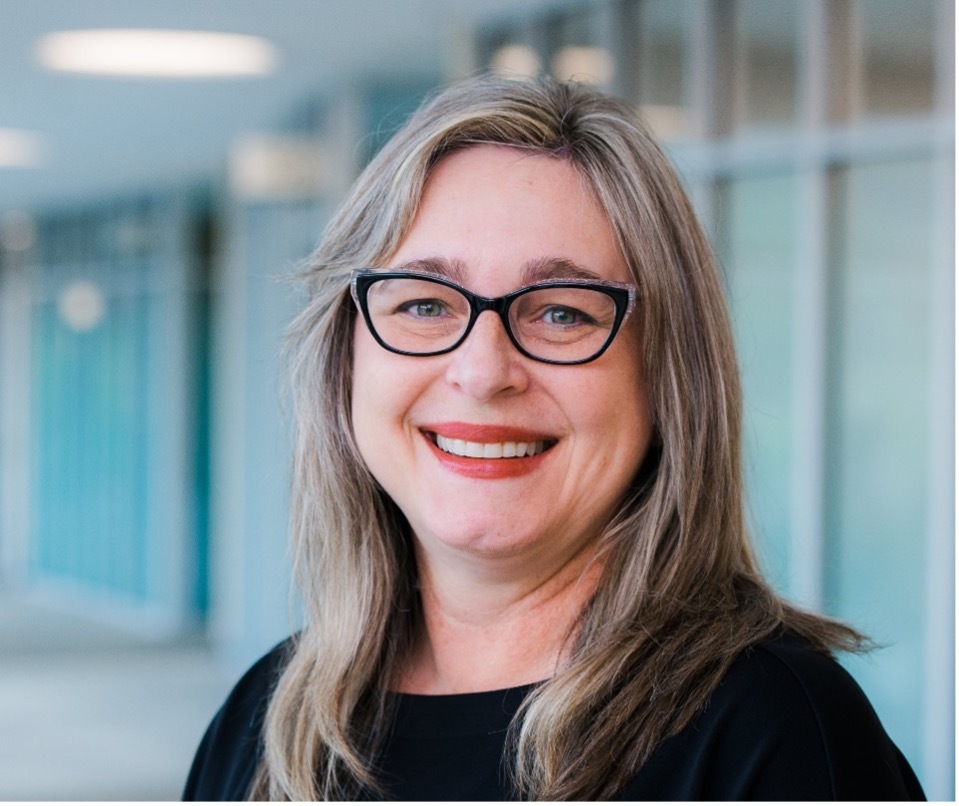
Laurel Hitchcock, Ph.D., MPH, MSW, LICSW-S, ACC
University of Alabama at Birmingham
Dr. Laurel Iverson Hitchcock is a Professor of Social Work at the University of Alabama at Birmingham, specializing in social work education, technology, and interprofessional practice. With a passion for innovative teaching and ethical leadership, she integrates coaching principles into her work to support social workers and educators in navigating professional challenges with clarity and confidence. As a licensed clinical social worker and accredited coach, Dr. Hitchcock brings a deep understanding of ethical decision-making, professional resilience, and self-care.
-
Register
- Non-member - Free!
- Member - Free!
- More Information
-
Contains 5 Component(s), Includes Credits
This module is the on-demand course for "Ethics and Boundaries for Substance Use Disorder Professionals" which was hosted by CSWE on March 18, 2025
Webinar Description
Sound ethics and boundaries are critical to the provision of Substance Use Disorder treatment. Ethical behaviors and boundaries support a client's treatment process, foster a positive client recovery environment, and promote service engagement. On the other hand, challenges related to unethical practices and boundaries can impact the professionals' well-being, resulting in negative job consequences. In this training, participants will reflect on their experiences with ethical dilemmas and explore strategies to deliver effective and professional care to SUD clients.
The purpose of the training is to promote an increased understanding and awareness in substance use and behavioral health providers of how adherence to a code of ethics and maintaining healthy boundaries is critical to the provision of quality substance use disorder treatment. Assisting individuals in the application of an ethical decision-making model through review of key ethical concepts and facilitated discussion focused on common ethical dilemmas SUD professionals experience. Participants will be introduced to differences between boundary crossings and boundary violations. Participants will be encouraged to think creatively and develop personalized strategies that suit the unique needs of their clinical settings and roles. The Center for Evidence-Based Practices makes every attempt to incorporate exercises and examples specific to the unique practice settings of participants, with an emphasis on individuals with severe and persistent mental illness and/or substance use disorders.
About PCSS-MOUD
The Providers Clinical Support System for Medications for Opioid Use Disorders (PCSS-MOUD) is a program funded by the Substance Abuse and Mental Health Services Administration (SAMHSA). It is led by the American Academy of Addiction Psychiatry (AAAP) in collaboration with a wide coalition of national professional and healthcare organizations. PCSS-MOUD aims to increase the knowledge and skills of healthcare and counseling professionals about available evidence-based treatment approaches for substance use disorder (SUD) with a particular focus on opioid use disorder (OUD). PCSS-MOUD provides free training and mentoring to practitioners on the use of medications for OUD (MOUD) and the integration of these services into mainstream health care. For more information on Providers Clinical Support System–Medication for Opioid Use Disorder, please visit the PCSS-MOUD website.
PCSS-MOUD Funder Statement
Funding for this initiative was made possible by cooperative agreement no. 1H79TI086770 from SAMHSA. The views expressed in written conference materials or publications and by speakers and moderators do not necessarily reflect the official policies of the Department of Health and Human Services; nor does mention of trade names, commercial practices, or organizations imply endorsement by the U.S. Government.Continuing Education (CE) Statement
Council on Social Work Education (CSWE), provider #1163, is approved to offer social work continuing education by the Association of Social Work Boards (ASWB) Approved Continuing Education (ACE) program. Organizations, not individual courses, are approved as ACE providers. State and provincial regulatory boards have the final authority to determine whether an individual course may be accepted for continuing education credit. CSWE maintains responsibility for this course. ACE provider approval period: 01/23/2018 - 01/23/2027.
Deana Leber George, M.Ed., LPCC-S
Manager of Training and Consultation
Center for Evidence-Based Practices (CEBP) and the Substance Use Disorder Center of Excellence (SUD COE) at Case Western Reserve University
Deana Leber-George is the Manager of Training and Consultation at both the Center for Evidence-Based Practices (CEBP) and the Substance Use Disorder Center of Excellence (SUD COE) at Case Western Reserve University. In this role, she leads a team of trainers and consultants dedicated to providing learning opportunities aimed at developing a behavioral health workforce that is self-aware, knowledgeable, and skilled in delivering evidence-based, effective treatment interventions to those they serve. She also evaluates and offers consultation services to behavioral health systems and organizations seeking to implement evidence-based practices into their service offerings.
Before joining CWRU's CEBP, Deana spent 17 years working in the community behavioral health field, specializing in the assessment, diagnosis, and treatment of co-occurring mental health and substance use disorders. She utilized evidence-based models such as Motivational Interviewing, Cognitive Behavioral Therapy, and the Integrated Dual Disorder Treatment Model.
Ms. Leber-George holds a Bachelor of Arts in Psychology from Lake Erie College in Painesville, Ohio, and a Master of Education in Community Counseling from Kent State University in Kent, Ohio. She is a Licensed Professional Clinical Counselor with Supervisory Designation in the State of Ohio.
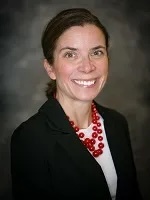
Patricia (Patty) Stoddard Dare, MSW, PhD (Moderator)
Cleveland State University
Dr. Patricia Stoddard Dare currently teaches Research Methods and Substance Abuse classes at both the undergraduate and graduate levels and serves as the co-coordinator of the Chemical Dependency Counseling Certificate Program. Her research focuses on vulnerabilities experienced by children, youth and families, such as substance use disorders, mental health issues, delinquency, limiting health conditions, maltreatment, gender discrimination and food insecurity. She is currently writing on the topic of paid sick leave benefits. Her research has been cited in a wide range of national media outlets, including US News & World Report, Forbes, the Chicago Tribune, NBC News, Yahoo Finance, Reuters, the BBC, The New York Times, USA Today and the PBS program Evidence-Based Policy.
-
Register
- Non-member - Free!
- Member - Free!
- More Information
-
Register
-
Contains 3 Component(s)
This webinar will explore how to activate social workers across the US to mobilize their clients, students, constituents, colleagues, and themselves to register and, more urgently to vote!
Imagine if all 700,000 social workers in the U.S. each registered three people to vote, and they registered three more and so on. Social workers can leverage their skills through voter engagement; and bring more attention to their clients, communities, and the profession.
This webinar will explore how to activate social workers across the US to mobilize their clients, students, constituents, colleagues, and themselves to register and, more urgently to vote!
Voting is Social Work (VISW) leadership is available to speak virtually to any major meeting or event that you may have between now and Election Day. Please reach out to VISW at Info@votingissocialwork.org if you are interested in partnering with them.
Learning Objectives:
1. Understand the current threats to democracy
2. Acquire information about voter registration and the actual voting process
3. Obtain resources and support for electoral activism
The content for this webinar was developed and delivered by Voting is Social Work and hosted by the Council on Social Work Education. The views and opinions expressed during the webinar are those of the speakers and do not necessarily reflect the views and positions of the Council on Social Work Education.
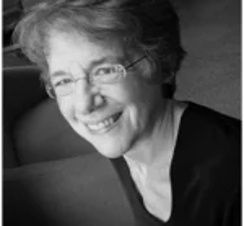
Mimi Abramovitz
Co-Chair
Voting is Social Work
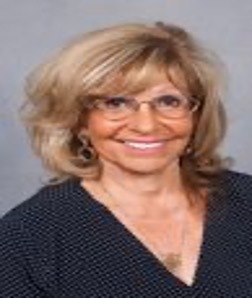
Terry Mizrahi
Co-Chair
Voting is Social Work
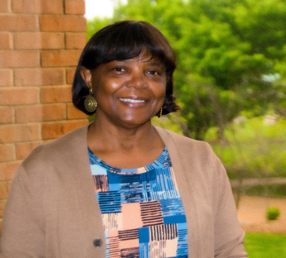
Sabrina Tyuse
Associate Professor of Social Work
Saint Louis University, School of Social Work
-
Register
- Non-member - Free!
- Member - Free!
- More Information
-
Register
-
Contains 5 Component(s), Includes Credits
In this webinar, researchers from the Social Action Lab at the University of Pennsylvania will discuss a novel, virtual social-behavioral intervention, GROV (Grid for Reduction of Regional Vulnerability).
About the Webinar:
In this webinar, researchers from the Social Action Lab at the University of Pennsylvania will discuss a novel, virtual social-behavioral intervention, GROV (Grid for Reduction of Regional Vulnerability), which is funded by the National Institute on Drug Abuse (NIDA) under the DP01 mechanism led by PI Dolores Albarracin. The presentation will showcase how the intervention seeks to foster effective social regulation of community challenges as a way of promoting HIV and HCV testing, preventing overdoses, seeking mental and physical health treatments, establishing social relationships, etc. The research team will delve into the intervention's design and procedures and share preliminary results during the webinar, followed by a question-and-answer session for attendees.
Learning Objectives:
- Recognize social regulatory approaches in HIV and HCV prevention
- Encourage discussions to promote HIV/HCV testing while addressing underlying social and ecological issues
- Identify strategies to ensure all onboarded participants are eligible and maintain a high retention level
Moderator:
Lili Windsor, PhD, MSW, Professor of Social Work and Associate Dean for Research. School of Social Work, University of Illinois Urbana Champaign
Presenters:
Man-pui Sally Chan, PhD, Research Associate Professor, Social Action Lab at the University of Pennsylvania
Janet Lopez, Graduate Student, the University of Pennsylvania
Mallory Trainor, Research Coordinator, Social Action Lab at the University of Pennsylvania
Angela Zhang, Research Project Manager/Data Analyst, Social Action Lab at the University of Pennsylvania
Funding for this initiative was made possible by cooperative agreement no. 1H79TI086770 from SAMHSA. The views expressed in written conference materials or publications and by speakers and moderators do not necessarily reflect the official policies of the Department of Health and Human Services; nor does mention of trade names, commercial practices, or organizations imply endorsement by the U.S. Government.
For more information on Providers Clinical Support System - Medication for Opioid Use Disorder, visit https://pcssnow.org/courses/
PCSS-MOUD Funding Statement:
Funding for this initiative was made possible by cooperative agreement no. 1H79TI086770 from SAMHSA. The views expressed in written conference materials or publications and by speakers and moderators do not necessarily reflect the official policies of the Department of Health and Human Services; nor does mention of trade names, commercial practices, or organizations imply endorsement by the U.S. Government.
ASWB ACE CE Language:
Council on Social Work Education (CSWE), provider #1163, is approved to offer social work continuing education by the Association of Social Work Boards (ASWB) Approved Continuing Education (ACE) program. Organizations, not individual courses, are approved as ACE providers. State and provincial regulatory boards have the final authority to determine whether an individual course may be accepted for continuing education credit. CSWE maintains responsibility for this course. ACE provider approval period: 01/23/2018 - 01/23/2027. Social workers completing this course receive 1.00 continuing education credits.
-
Register
- Non-member - Free!
- Member - Free!
- More Information
-
Contains 11 Product(s)
This six-part webinar series invites participants to merge results from cutting edge research and clinical experience to inform social work practice. Participants will explore how social work practitioners have implemented research findings in their practice, how people with SUD are experiencing services, and what are the pressing gaps that need to be addressed.
The field of Substance Use Disorders (SUD) Treatment has changed substantially over the past decade. The opioid epidemic and the COVID-19 pandemic have fueled unprecedented research documenting the impact of social determinants of health (how and where people live, work, and play) on substance use; developing new forms of pharmaceutical treatments; and highlighting the need to address racism and stigma in treatment and prevention. Yet, much work remains to improve treatment and access to quality SUD treatment. This webinar series invites us to merge results from cutting edge research and clinical experience to inform social work practice. We will explore how social work practitioners have implemented research findings in their practice, how people with SUD are experiencing services, and what are the pressing gaps that need to be addressed. We will consider the impact of social determinants of health, including racism and stigma, on different populations throughout the series. Finally, we will learn firsthand about new developments in SUD Treatment research and how we can leverage technology to improve access and outcomes. Our goal is to explore ways to address SUD more thoroughly, equitably, effectively, and effectively in our clinical practice.
About PCSS-MOUD
The Providers Clinical Support System for Medications for Opioid Use Disorders (PCSS-MOUD) is a program funded by the Substance Abuse and Mental Health Services Administration (SAMHSA). It is led by the American Academy of Addiction Psychiatry (AAAP) in collaboration with a wide coalition of national professional and healthcare organizations. PCSS-MOUD aims to increase the knowledge and skills of healthcare and counseling professionals about available evidence-based treatment approaches for substance use disorder (SUD) with a particular focus on opioid use disorder (OUD). PCSS-MOUD provides free training and mentoring to practitioners on the use of medications for OUD (MOUD) and the integration of these services into mainstream health care.
For more information on Providers Clinical Support System, please visit their webiste: https://pcssnow.org/
Funding for this initiative was made possible by cooperative agreement no. 1H79TI086770 from SAMHSA. The views expressed in written conference materials or publications and by speakers and moderators do not necessarily reflect the official policies of the Department of Health and Human Services; nor does mention of trade names, commercial practices, or organizations imply endorsement by the U.S. Government.
PCSS-MOUD Funding Statement:
Funding for this initiative was made possible by cooperative agreement no. 1H79TI086770 from SAMHSA. The views expressed in written conference materials or publications and by speakers and moderators do not necessarily reflect the official policies of the Department of Health and Human Services; nor does mention of trade names, commercial practices, or organizations imply endorsement by the U.S. Government.
ASWB ACE CE Language:
Council on Social Work Education (CSWE), provider #1163, is approved to offer social work continuing education by the Association of Social Work Boards (ASWB) Approved Continuing Education (ACE) program. Organizations, not individual courses, are approved as ACE providers. State and provincial regulatory boards have the final authority to determine whether an individual course may be accepted for continuing education credit. CSWE maintains responsibility for this course. ACE provider approval period: 01/23/2018 - 01/23/2027. Social workers completing this course receive 1.00 continuing education credits.
The process for receiving CE certificates varies between live-online and on-demand programs. For information on how to claim your certificates, please see below:Live Online Webinars:
For live online webinars, eligible participants will receive an invitation to claim their CE certificates with 30 days of the webinar offering date. Certificates will be made available through CSWE's Learning Academy, where eligible attendees will be able to complete the course evaluation and claim their CE certificate. Eligible attendees will receive an email notification prompting them to claim their certificate through the learning academy once it is made available. In order to receive CEs for live-online webinars, the attendee will have to complete the following steps:
Step One:
The attendee must be present for the entire webinar. This means that the attendee must log-in on time and must be present for the duration of the webinar. If a participant is not present for the entire webinar, they will not be considered eligible to receive CE credits.
Step Two:
The attendee must complete the required evaluation(s). After the completion of the webinar, CE eligible attendees will receive an invitation to claim their certificate through CSWE’s online Learning Academy via email. The attendee would then log into the learning academy and complete the required program evaluation(s) for the corresponding webinar. Most programs will only have one evaluation, but there may be additional evaluations depending on program requirements.
Step Three:
Once the attendee has completed the required evaluation(s), they will be able to access their certificate through their Learning Academy dashboard. The certificate can be downloaded and accessed through the Learning Academy at any time.
On-Demand Webinars:
For on-demand webinars, participants will receive their CE certificates after the completion of the webinar content. The certificate will be available for viewing and download in the learning module as well as in the participant's Learning Academy dash board once the below steps are complete:
Step One:
Complete webinar content
Step Two:
After completion of the webinar content, the attendee will be directed to take a posttest. Attendees must complete the posttest and pass with a score of 80% or higher. If the attendee does not pass the posttest on their first attempt, they will be allowed to re-test two additional times. If the attendee does not pass the posttest on their third attempt, they will not be eligible to claim CEs.
Step Three:
The attendee must complete the required evaluation(s). After the completion of the program content and posttest, participants will be prompted to complete the evaluation(s). Most webinars will only have one evaluation, but there may be additional evaluations depending on program requirements.
Step Four:
Once the attendee has completed the webinar content, posttest, and required evaluation(s), they will be able to access their certificate through their Learning Academy dashboard. The certificate can be downloaded and accessed through the Learning Academy at any time.
-
Register
- Non-member - Free!
- Member - Free!
- More Information
-
Register
-
Contains 5 Component(s), Includes Credits
This presentation reviewed the origins and trajectory of the current opioid epidemic, now described as being in its fourth wave.
About the Webinar:
Most treatments and interventions for Opioid Use Disorder (OUD) require that individuals engage in interpersonal communication with their health service providers or individuals in their recovery support network. However, at the specific moment when people resume their misuse of opioids, they are often alone or with people who enable their substance use. This webinar will provide information on the utilization of paced breathing exercises, delivered by smartphone, for self-management of drug cravings, stress, and anxiety. This session will include an overview of just-in-time interventions for substance use disorders, the biological basis for paced-breathing effectiveness, and user experience results from a pilot study.
Learning Objectives:
- Identify the fundamental concept of just-in-time (JIT) smartphone interventions and their relevance across various domains.
- Describe the physiological mechanisms behind smartphone-delivered resonance breathing exercises. This includes exploring how it affects the autonomic nervous system, heart rate variability, and overall stress levels.
- Recognize indicators of a positive user experience of JIT smartphone interventions.
Moderator:
Lili Windsor, PhD, MSW, Professor of Social Work and Associate Dean for Research. School of Social Work, University of Illinois Urbana Champaign
Presenters:
Fiona Conway, PhD, Associate Director of Research at the Addiction Research Institute at Steve Hicks School of Social Work, The University of Texas at Austin
Funding for this initiative was made possible by cooperative agreement no. 1H79TI086770 from SAMHSA. The views expressed in written conference materials or publications and by speakers and moderators do not necessarily reflect the official policies of the Department of Health and Human Services; nor does mention of trade names, commercial practices, or organizations imply endorsement by the U.S. Government.
For more information on Providers Clinical Support System - Medication for Opioid Use Disorder, visit https://pcssnow.org/courses/
PCSS-MOUD Funding Statement:
Funding for this initiative was made possible by cooperative agreement no. 1H79TI086770 from SAMHSA. The views expressed in written conference materials or publications and by speakers and moderators do not necessarily reflect the official policies of the Department of Health and Human Services; nor does mention of trade names, commercial practices, or organizations imply endorsement by the U.S. Government.
ASWB ACE CE Language:
Council on Social Work Education (CSWE), provider #1163, is approved to offer social work continuing education by the Association of Social Work Boards (ASWB) Approved Continuing Education (ACE) program. Organizations, not individual courses, are approved as ACE providers. State and provincial regulatory boards have the final authority to determine whether an individual course may be accepted for continuing education credit. CSWE maintains responsibility for this course. ACE provider approval period: 01/23/2018 - 01/23/2027. Social workers completing this course receive 1.00 continuing education credits.
-
Register
- Non-member - Free!
- Member - Free!
- More Information

